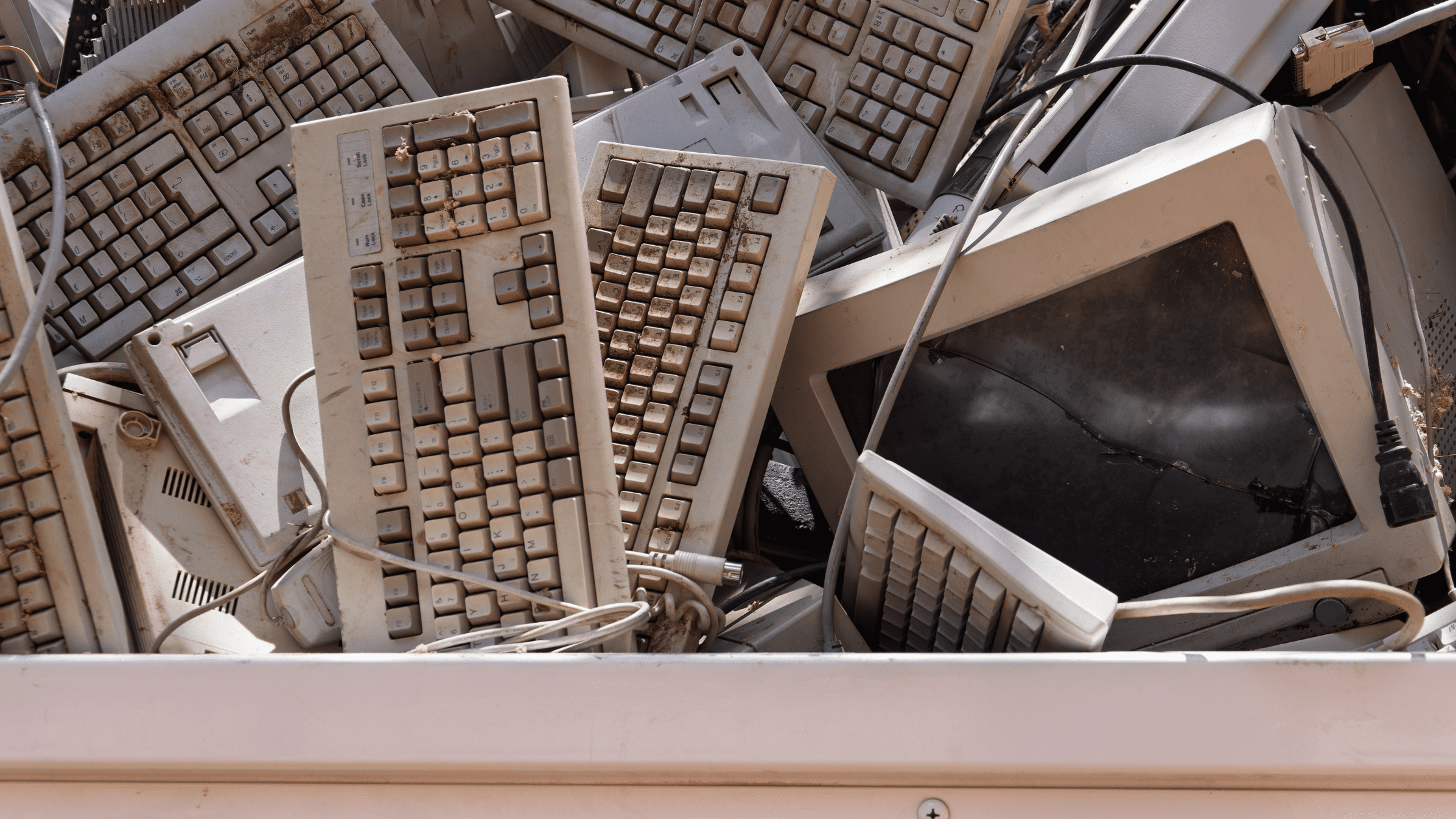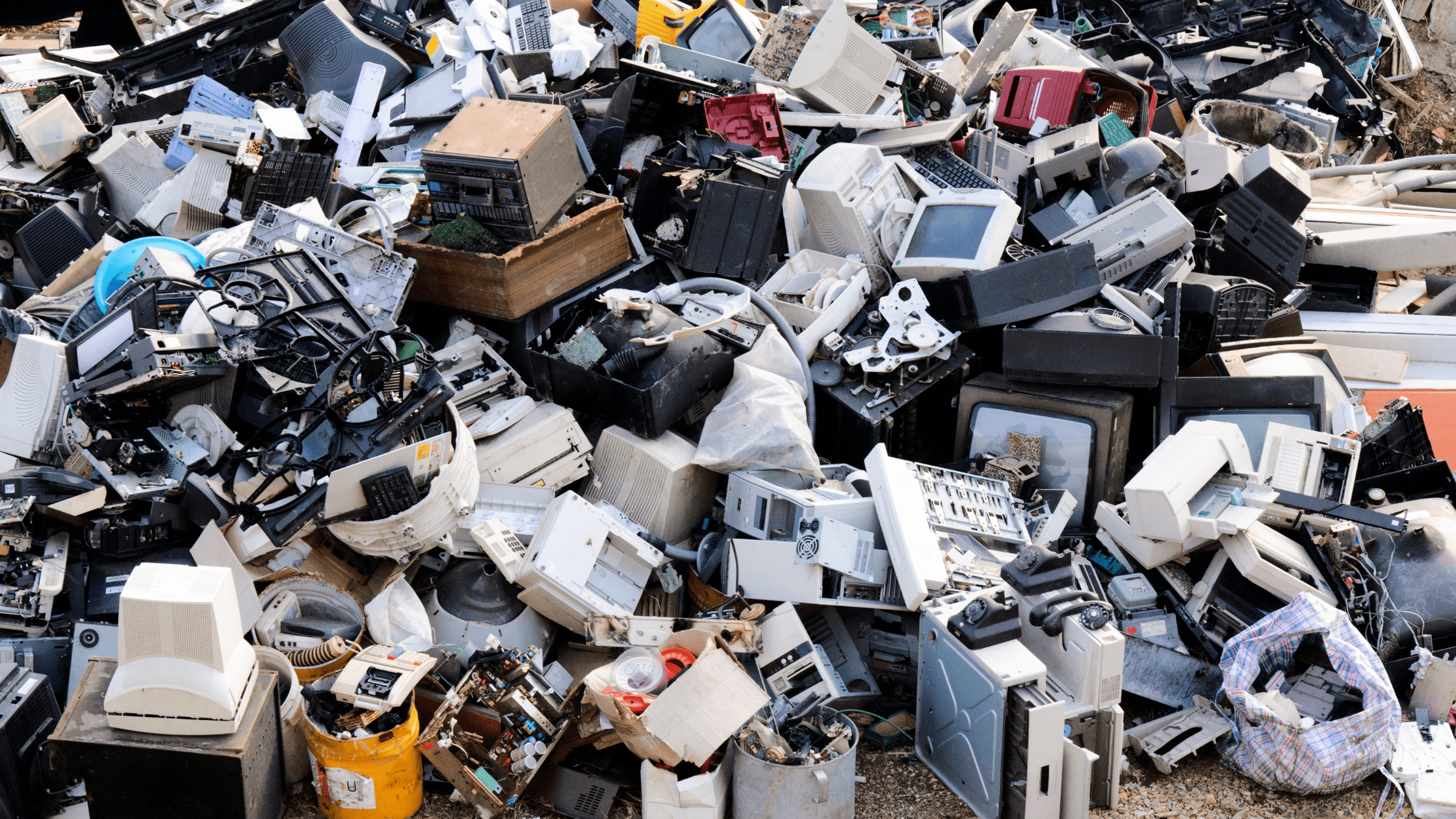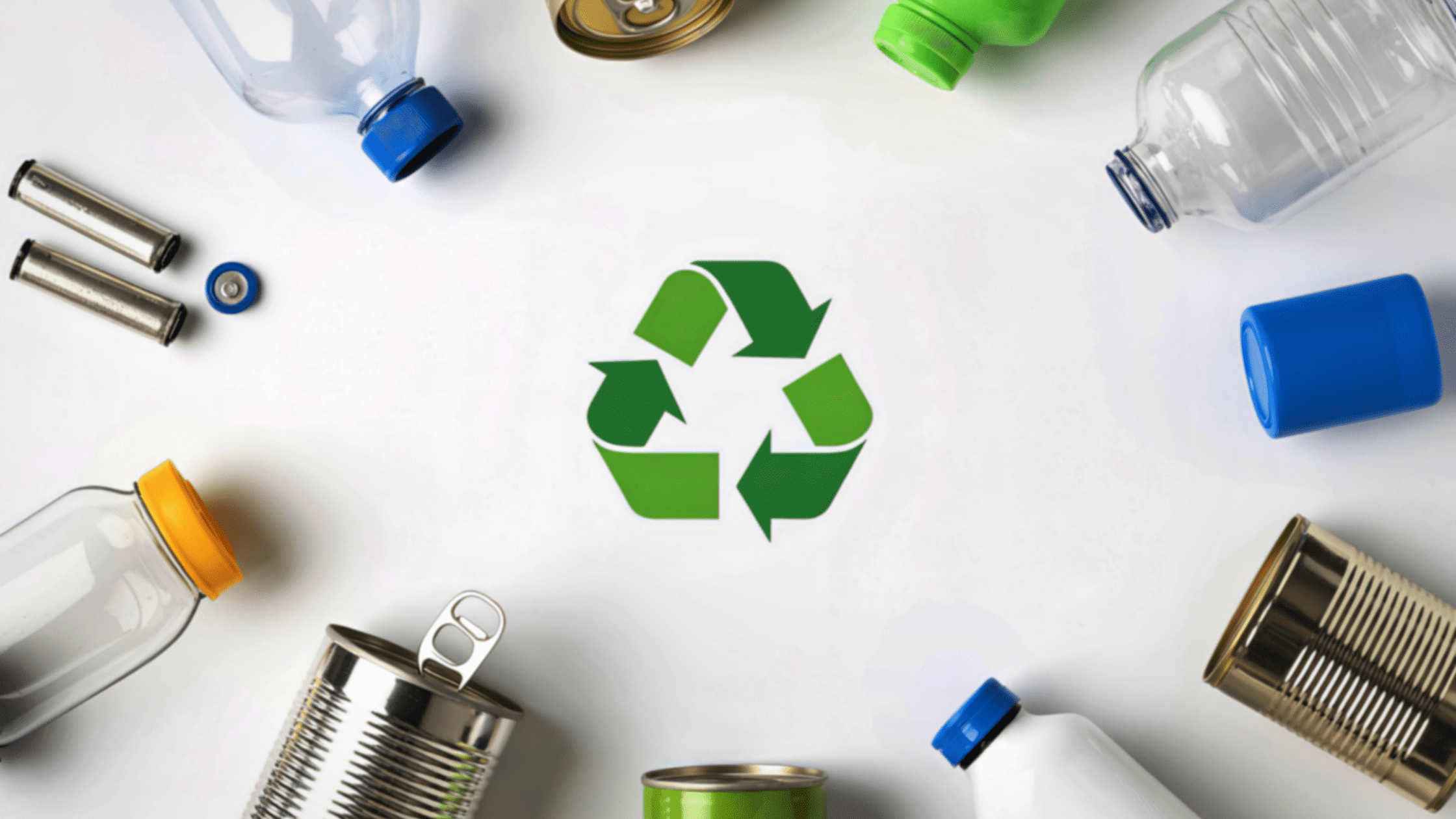
The UK is one of the biggest producers of e-waste in the world, and UK businesses contribute more than their fair share.
Over 62 million tonnes of e-waste is produced globally every year, filling landfills with toxic substances such as lead and mercury which then seep into the surrounding soil and water courses. It is a terrible burden on the environment, and a sign of poor waste disposal habits.
If you want your business to be less wasteful, and contribute to a fairer, cleaner world, it’s time to get to grips with your e-waste and find responsible, safe ways to dispose of it.
What is e-waste?
E-waste, or Electronic Waste, is any waste with an electrical component.
It may be an old laptop or phone, a printer, a charger cable, or even an old coffee machine. Any electrical device in your office which no longer works or which no longer serves a purpose is e-waste.
What are the main causes of e-waste?
Technology is changing quickly, with this month’s latest gadget swiftly falling into irrelevance.
No business can be blamed for wanting to keep up with the pace of change in order to maintain a competitive edge, but this constant upgrading of electrical hardware often results in mountains of e-waste in UK landfills, much of which is still useable or salvageable.
Inadequate waste disposal infrastructure is also to blame. While paper, plastic, and metal waste is easy to recycle, the disposal protocol surrounding electrical goods is less clear. They cannot be put in an ordinary recycling bin, but must be transported to a dedicated recycling point. In most cases, it is simply easier and cheaper to toss e-waste in the bin.

Recycling facts
Recycling e-waste may be the more difficult option, but for any business concerned with security and sustainability, it is more a than worthwhile effort.
Most businesses do whatever they can to protect their data and the privacy of their customers and employees, investing in security software, training their staff in security protocols, and storing data in external cloud services.
But 25% of all data breaches can be linked back to irresponsible e-waste disposal. A laptop or mobile phone might be thrown away without a second thought given to the banking, email, and customer accounts it might still have access to, resulting in a serious, perhaps terminal data breach.
Electrical hardware not only contains valuable information, but valuable materials. Gold, silver, copper, and palladium can be found in many mobile devices and circuit boards, material which is needlessly wasted when discarding electronics into landfill.
What to do with your e-waste
One way to get rid of your business e-waste is to take advantage of take-back schemes.
Many electrical stores will accept broken consumer electricals such as laptops and phones at no charge, even offering some form of discount on new replacements. Electricals which are outdated but still functional can be given to local charity shops to build bonds within the community or sold online for extra profit.
Failing that, find the location of your local electrical recycling centre online, and check what kinds of devices they accept.
Waste management firms
As a business, one of the most efficient ways to dispose of e-waste is to engage the assistance of an external waste disposal firm.
They will responsibly dispose of all your e-waste and consult with you so they can effectively cater to your business’s specific waste disposal requirements.
Contact our expert commercial waste collection team at Everflow now and let us help you to find a more sustainable and responsible e-waste solution.

Contact Everflow today!
At Everflow, our goal is to make your utilities simpler – we ensure you get great-value contracts that are tailored to your needs and easy to manage. Get a bespoke quote using the link below.


